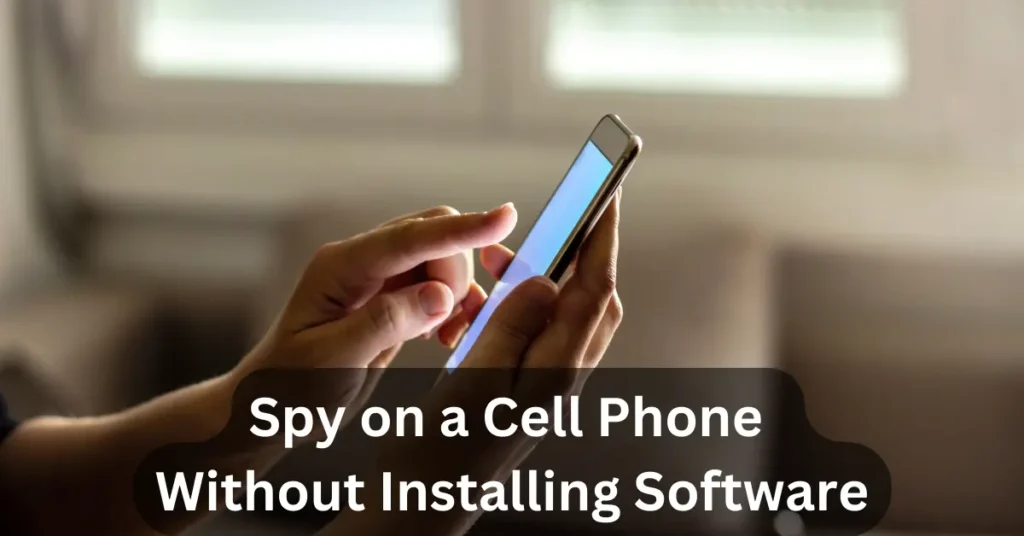In the era of digital technology, our electronic gadgets have become an integral part of our lives. We rely on them for communication, entertainment, and safety. Nevertheless, these devices have the potential to be used against us by tracking our movements and snooping on our private conversations.
From smartphones to smart TVs, almost every device that is connected to the internet can be used to spy on you. This goes beyond just smart speakers and webcams. Even drones can be employed to violate your privacy. Fortunately, there are measures you can take to safeguard yourself and secure your data.
Here are some ways to prevent your devices from spying on you:
1. Secure Your Smart
TV Smart TVs are one of the most common devices that can be used to spy on you. Many models have built-in microphones and cameras that can be activated remotely without your knowledge. To protect yourself, start by reviewing your smart TV’s privacy settings. Check for options to turn off the microphone and camera, as well as any data-sharing features. If the camera cannot be disabled, use a physical cover for it.
2. Be Careful with Text Messages
Text messages are a convenient mode of communication, but they are not always private. Others can intercept your messages in various ways, including automatic message forwarding to another device. To prevent this, check your text message forwarding settings on your iPhone. Go to Settings > Messages > Text Message Forwarding. If you don’t see this option, turn off iMessage, turn it back on, and then tap Send & Receive > Use Your Apple ID for iMessage. If you see any unfamiliar devices, turn them off. You can also dial *#21# on the keypad of your phone app to check if your calls and texts are being forwarded.
3. Watch Out for Spyware
Spyware is software that can monitor your device, including your calls, texts, and social media interactions. Some developers advertise spyware to protect your loved ones, while others may use it to spy on you. Popular spyware apps include mSpy, SpyBubble, XNSPY, Cocospy, Spyera, EyeZy, uMobix, and Hoverwatch. If you suspect that spyware is installed on your device, check for unfamiliar apps and unusual incidents, such as your phone shutting down on its own or frequently losing connection during calls.
4. Protect Your Phone
Check your apps regularly. Are there any unfamiliar apps that you don’t remember installing? If so, delete them. Use strong passwords and PINs for your phone, as well as two-factor authentication whenever possible. If you suspect that spyware or other malicious software is installed on your phone, change your passwords and PINs immediately. Back up and factory reset your phone to ensure that all traces of the software are removed.
5. Be Mindful of Drones
Drones are becoming increasingly popular for both hobbyists and professionals, and they can be used to invade your privacy. To protect yourself, avoid flying your drone near other people’s homes and be aware of any local laws and regulations. If you suspect that a drone is being used to spy on you, document the incident and report it to the authorities. You can also use a drone detection system to detect and track drones in your area.
6. Protect Your Smart Home Devices
Smart home devices such as Amazon Echo and Google Home are always listening for their wake words, but they can also be used to spy on you. To protect your privacy, mute the microphone when you’re not using it. Review the device’s privacy settings and disable any features that make you uncomfortable.
7. Secure Your Webcam
It’s an alarming fact that hackers can potentially access your webcam and monitor your activities without your consent. This cyber intrusion not only violates your privacy but also poses a threat to your security. Therefore, it’s essential to take precautionary measures to ensure your webcam remains secure.
One simple yet effective solution is to cover your webcam with a piece of tape or a webcam cover. This way, even if hackers gain unauthorized access to your device, they won’t be able to view you through the webcam.
8. Using Antivirus and Firewall Software
Antivirus and firewall software are essential tools for protecting your devices from malware and other cyber threats. Make sure that you have reliable antivirus software installed on all your devices and keep it updated regularly. You should also enable the firewall on your devices and review its settings to ensure that it’s configured properly.
9. Limiting App Permissions
Many apps require access to your device’s data and features to function properly. However, some apps may request permissions that aren’t necessary for their intended purpose, which can be a privacy risk. Review the permissions requested by your apps and disable any that you’re not comfortable with.
10. Using Strong Passwords
Strong passwords are essential for protecting your accounts and personal information. Use unique, complex passwords for each of your accounts and change them regularly. You can also use a password manager to generate and store strong passwords securely.
In conclusion, protecting your privacy in the digital age requires a combination of awareness, vigilance, and good cybersecurity practices. By following these tips and staying informed about the latest threats and best practices, you can reduce your risk of being spied on and keep your personal information safe.

